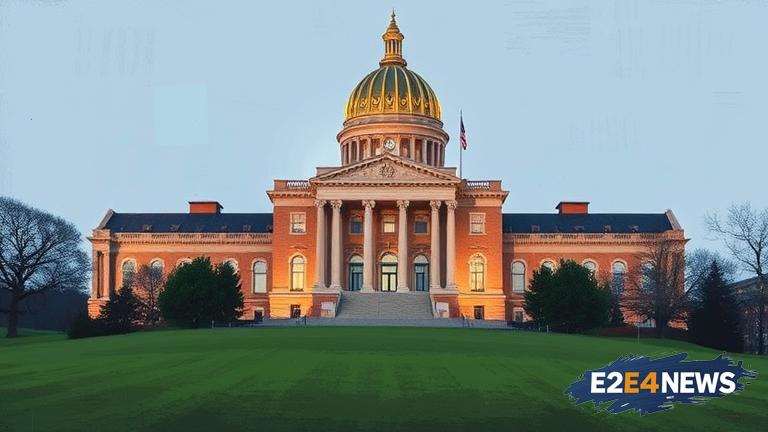A recent proposal by Iowa lawmakers has ignited a heated discussion about the limits of the governor’s emergency powers. The bill, which is currently being debated in the state legislature, seeks to restrict the governor’s ability to declare a state of emergency and impose subsequent measures. Proponents of the bill argue that it is necessary to prevent the governor from abusing their power and to ensure that the rights of citizens are protected. On the other hand, opponents claim that the bill would undermine the governor’s ability to respond effectively to emergencies and crises. The proposal has sparked a lively debate among politicians, with some arguing that it is a necessary check on the governor’s power, while others see it as an attempt to politicize the emergency response process. The bill’s sponsors argue that it would provide a more balanced approach to emergency management, allowing the legislature to have a greater say in the decision-making process. However, critics argue that the bill would create unnecessary bureaucracy and hinder the governor’s ability to respond quickly to emergencies. The proposal has also raised concerns among citizens, with some expressing fears that it could compromise the state’s ability to respond to natural disasters and other crises. Others see it as a necessary step to prevent the governor from overstepping their authority. The bill’s fate remains uncertain, as it still needs to pass through several stages of the legislative process before it can become law. If passed, the bill would likely have significant implications for the state’s emergency management procedures and the balance of power between the governor and the legislature. The proposal has also sparked a wider discussion about the role of government in times of crisis and the need for effective emergency management. As the debate continues, it remains to be seen how the bill will fare in the legislature and what impact it will have on the state’s emergency response procedures. The bill’s sponsors are confident that it will pass, but opponents are determined to block it. The outcome of the debate will have significant implications for the state’s governance structure and its ability to respond to emergencies. In recent years, there have been several instances where the governor’s emergency powers have been called into question, and this bill is seen as an attempt to address those concerns. The proposal has also been influenced by national trends, with several other states considering similar measures to limit their governors’ emergency powers. Ultimately, the fate of the bill will depend on the ability of its sponsors to build a coalition of support and navigate the complexities of the legislative process.
